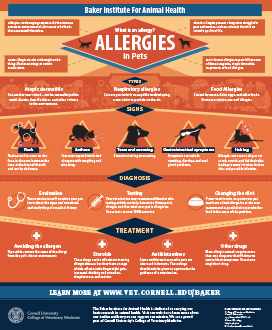How To Introduce Dog To Daycare
How To Introduce Dog To Daycare
Blog Article
Can Canine Daycare Reason Health Problem?
Possibilities are that if your dog is regularly revealed to various other dogs, even if they're effectively immunized, they may return with some type of illness. Inoculations, routine veterinary appointments, and good hygiene practices can lessen risk variables for infection and illness.
Worried or nervous pet dogs can create stomach troubles and various other wellness concerns that are conveniently spread out in between pets. Developing age constraints and behavior regulations can aid make certain that just healthy and balanced dogs enter your facility.
Distemper
Canine distemper is a major and commonly deadly infection that assaults a pet dog's breathing, digestion, skin and immune systems. Young puppies are particularly vulnerable and can acquire the illness with direct contact with an infected animal or through the airborne transmission of infection fragments discharged throughout coughing, sneezing or taking a breath.
The incubation duration for canine distemper is in between 3 and 7 days. While puppies at day care may appear to capture parvo from an additional contaminated pet dog, it's not likely given that the incubation duration is so brief.
While there is no remedy for canine distemper, helpful care can help dogs recover. This consists of liquids, anti-biotics and drugs to regulate seizures. The Drake Facility for Veterinary Care notes that signs and symptoms consist of drippy eyes and nose, diarrhea, vomiting, loss of appetite and neurological troubles such as twitching and shakes. Young puppies need a full inoculation collection and yearly boosters to protect them versus this condition, which is why credible dog daycare facilities need updated vaccinations.
Kennel Coughing
Kennel Cough (Canine Transmittable Tracheobronchitis) is an extremely contagious top breathing condition caused by microorganisms and infections. It spreads via airborne droplets from a coughing or sneeze, direct contact, and sharing of infected items such as toys or water bowls. It is native to the island in position where numerous pets are housed close together, such as kennels, pet dog parks, brushing beauty salons and shows. Numerous injections are available to shield versus the pathogens that create kennel cough, and proper health practices can aid stop infection.
The classic signs and symptom is a completely dry, hacking cough comparable to that of a goose honk, and the majority of pet dogs recover with little treatment. Nevertheless, extreme situations can lead to pneumonia, and young puppies or dogs with pre-existing health problem are at greater risk for difficulties. To accelerate recovery, make use of a harness instead of a collar while your pet is recuperating to stay clear of inflammation to the windpipe. A humidifier may likewise aid to moisten the air and protect against dry coughing.
Parvovirus
Parvovirus (CPV) is a significant illness in dogs. It resembles feline panleukopenia (feline distemper), however it's far more dangerous and can spread swiftly among pets due to its exceptionally durable nature.
This infection attacks the intestinal tract lining of a pet, ruining it and creating bacteria to dismiss into the blood stream. The weakened body immune system and overwhelming germs lead to septic shock, which is normally fatal.
Luckily, vet medical facilities supply efficient therapy for parvovirus. These medications are provided directly into a person's bloodstream and targeted in the direction of the specific stress of parvovirus. This treatment technique is very effective and assists retrain the immune system to eliminate off the infection. Dogs with serious symptoms are typically hospitalized for numerous days for monitoring dog boarding daycare and extensive care to ensure their survival. Pups, unvaccinated dogs and canines with weak body immune systems are particularly vulnerable to parvovirus. This is specifically true for puppies birthed to roaming mothers and shelter atmospheres, where they are revealed to many other ill and at risk canines.
Pooch Flu
Canine influenza (CIV) is a transmittable respiratory disease that can be triggered by pets sharing contaminated surfaces or straight contact with respiratory system secretions. CIV spreads easily in atmospheres where there are high varieties of dogs, such as pet dog parks, daycares, grooming centers and vet facilities.
Infected pet dogs dropped the infection through aerosol respiratory droplets when coughing or sneezing, and might infect things they come into contact with like cages, toys, food bowls, leashes and the hands and clothes of individuals who handle them. Canines can additionally be "silent providers" spreading out the infection without revealing any signs themselves.
Signs of canine flu consist of nasal and eye discharge, cough, fever, loss of appetite, and weak point. The infection can proceed to pneumonia, which can be fatal in some canines. PCR viral screening is readily available for verification of infection. Preferably, samples (typically deep nasal or pharyngeal swabs) for PCR testing must be accumulated within 4 days of the onset of scientific indicators.